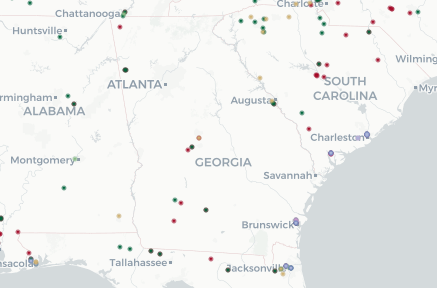Section Branding
Header Content
Climate Change Threatens Georgia Superfund Sites
Primary Content
A new report found most of Georgia’s heavily-contaminated superfund sites are vulnerable to impacts from climate change. Sea level rise, hurricanes and other threats could affect Georgia's superfund sites.
The analysis by the Government Accountability Office found 16 sites in the state are at risk from threats like sea level rise and wildfires.
Coastal Glynn County is home to four of them, three of which are vulnerable to storms, flooding and rising seas, according to the report.
The site facing the most risks is the LCP Chemical site on over 600 acres of marsh in Brunswick. The GAO found it is susceptible to inundation by sea water even before marked levels of climate change related sea level rise.
Rachael Thompson of the Glynn Environmental Coalition said plans to contain contamination at these sites do not account for climate change.
“Some of the remedies that the EPA is putting in place now, today, could be underwater and/or could be put in the line of, you know, the high water line if a storm was to come in,” she said.
Thompson said there are even more state-designated hazardous waste sites that face similar risks.


